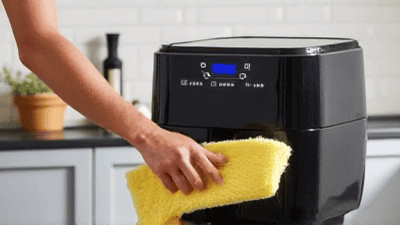How to Manage Anxiety: 7 Practical Tips
In today’s fast-paced world, anxiety has become an all-too-common experience for many individuals. Whether triggered by work-related stress, personal relationships, or broader societal pressures, anxiety can significantly impact mental health and overall well-being.

In today’s fast-paced world, anxiety has become an all-too-common experience for many individuals. Whether triggered by work-related stress, personal relationships, or broader societal pressures, anxiety can significantly impact mental health and overall well-being. Understanding how to manage anxiety effectively is crucial.
Understanding Anxiety
Anxiety is characterized by feelings of worry, fear, or apprehension. It can manifest itself in various ways, including physical symptoms such as sweating, rapid heartbeat, and fatigue, as well as emotional symptoms like irritability and difficulty concentrating. While occasional anxiety is a normal response to stress, chronic anxiety can lead to more severe mental health issues, including generalized anxiety disorder (GAD), panic disorder, and social anxiety disorder.
Why Managing Anxiety Matters
Managing anxiety is essential not just for mental health but for overall quality of life. Chronic anxiety can lead to health problems, decreased productivity, strained relationships, and a negative impact on personal fulfillment. However, the good news is that there are various strategies we can employ to effectively manage anxiety.
Tip 1: Practice Mindfulness and Meditation

Mindfulness and meditation are effective techniques for managing anxiety. These practices help ground you in the present moment, allowing you to observe your thoughts and feelings without judgment.
Benefits of Mindfulness
- Reduces Anxiety: Studies have shown that mindfulness can significantly reduce levels of anxiety by promoting a sense of calm.
- Enhances Self-Awareness: Mindfulness encourages self-reflection, helping you identify triggers and patterns in your anxiety.
- Improves Focus: Practicing mindfulness can sharpen your focus, making it easier to manage day-to-day tasks without feeling overwhelmed.
How to Get Started with Mindfulness
- Daily Meditation: Set aside 10-15 minutes each day to practice meditation. Find a quiet place, close your eyes, and focus on your breathing.
- Mindful Breathing: Whenever you feel anxious, take a moment to breathe deeply. Inhale slowly through your nose for a count of four, hold for four, and exhale through your mouth for a count of four. Repeat several times.
- Body Scan: Lie down comfortably and mentally scan your body from head to toe, noticing any areas of tension. Consciously relax those areas as you breathe.
Tip 2: Develop a Healthy Routine
Establishing a daily routine can provide structure and stability, which are essential for managing anxiety. A healthy routine encompasses various aspects of life, including sleep, nutrition, exercise, and leisure.
Key Components of a Healthy Routine
- Sleep: Aim for 7-9 hours of quality sleep each night. Sleep is vital for emotional regulation and cognitive function.
- Nutrition: Fuel your body with balanced meals rich in whole foods. Limit caffeine and sugar, as they can exacerbate anxiety symptoms.
- Exercise: Physical activity releases endorphins, which can boost mood and reduce anxiety levels. Aim for at least 30 minutes of moderate exercise most days.
- Leisure Activities: Allocate time for hobbies and activities that you enjoy. This can be a great way to decompress and take your mind off stressors.
Tip 3: Connect with Others

Social support plays a crucial role in managing anxiety. Connecting with others can provide emotional reassurance and distract you from anxious thoughts.
Strategies for Building Connections
- Reach Out: Don’t hesitate to call a friend or family member when you’re feeling anxious. Share your thoughts and feelings openly.
- Join Support Groups: Consider joining a local or online support group for individuals dealing with anxiety. Sharing experiences can foster a sense of community.
- Volunteer: Helping others can provide perspective and reduce feelings of isolation. Look for local volunteer opportunities that resonate with you.
Tip 4: Limit Social Media and News Consumption
In our digital age, social media and news can significantly contribute to feelings of anxiety. Constant exposure to negative news and unrealistic comparisons can heighten stress levels.
How to Manage Media Consumption
- Set Boundaries: Limit your daily exposure to social media and news. Designate specific times during the day to check your feeds.
- Unfollow Toxic Accounts: Curate your social media feeds. Unfollow accounts that promote negativity or unrealistic standards.
- Focus on Positivity: Engage with content that uplifts and inspires you. Follow pages or accounts that share positive messages, mindfulness tips, or educational content.
Tip 5: Engage in Relaxation Activities

Incorporating relaxation techniques into your daily routine can help reduce anxiety levels and promote a sense of well-being.
Relaxation Techniques to Try
- Yoga: This mind-body practice combines physical movement, breath control, and meditation, making it an effective way to reduce anxiety.
- Progressive Muscle Relaxation: Systematically tense and then relax different muscle groups in your body. This technique helps to release physical tension associated with anxiety.
- Creative Expression: Engage in creative activities such as painting, writing, or playing music. These outlets can serve as a therapeutic way to express and process emotions.
Tip 6: Seek Professional Help
Sometimes, managing anxiety requires professional intervention. Therapists and counselors can provide tailored strategies and support for coping with anxiety.
Types of Professional Help
- Cognitive Behavioral Therapy (CBT): This evidence-based therapy focuses on changing negative thought patterns and behaviors associated with anxiety.
- Medication: In some cases, medication may be prescribed to help manage anxiety symptoms. Consult a healthcare professional to discuss potential options.
- Support from Mental Health Professionals: Don’t hesitate to reach out for help when needed. A qualified mental health professional can provide tools and strategies tailored to your specific situation.
Tip 7: Practice Self-Compassion
Self-compassion is the practice of treating yourself with kindness and understanding, especially during moments of struggle. Learning to be compassionate towards yourself is crucial for managing anxiety.
How to Cultivate Self-Compassion
- Acknowledge Your Feelings: Accept that anxiety is a part of the human experience. It’s okay to feel anxious; it doesn’t define you.
- Avoid Self-Criticism: Challenge negative self-talk by reminding yourself of your strengths and accomplishments. Speak to yourself as you would to a friend.
- Engage in Self-Care: Dedicate time to self-care activities that nurture your mind and body. This could include reading a book, taking a warm bath, or going for a nature walk.
Conclusion
Managing anxiety is a journey that requires patience and persistence. By incorporating these seven practical tips into your daily life, you can take meaningful steps towards reducing anxiety levels and enhancing your overall mental well-being. It’s important to remember that there is no one-size-fits-all solution; what works for one person may not work for another. Therefore, be gentle with yourself as you explore different strategies.
If you’re struggling with anxiety, don’t hesitate to reach out for support. Whether it’s from friends, family, or mental health professionals, know that you are not alone in this journey. With the right tools, techniques, and support, you can learn to manage anxiety and live a fulfilling life.




